After COVID cancellations the last two years, Owen Sound is hoping the third time’s the charm for Hockey Day in Canada. Scheduled for next month, events in the city where I’ve lived since 2006 begin on Wednesday, January 18, 2023. They culminate in a day-long broadcast of NHL games, plus three local games, on Saturday, January 21.
It’s more good luck than good management at this point, but the timing is fairly auspicious, since the 2022-23 season marks the centennial of a breakthrough time for Owen Sound hockey. That’s a bit of a stretch, since the local Greys had done better in previous years, and wouldn’t truly have their big breakthrough until 1923-24, when the Greys won the Memorial Cup as Canada’s national junior champions. Still, the 1922-23 season was an important one in Owen Sound hockey history because it brought Ralph “Cooney” Weiland to town.
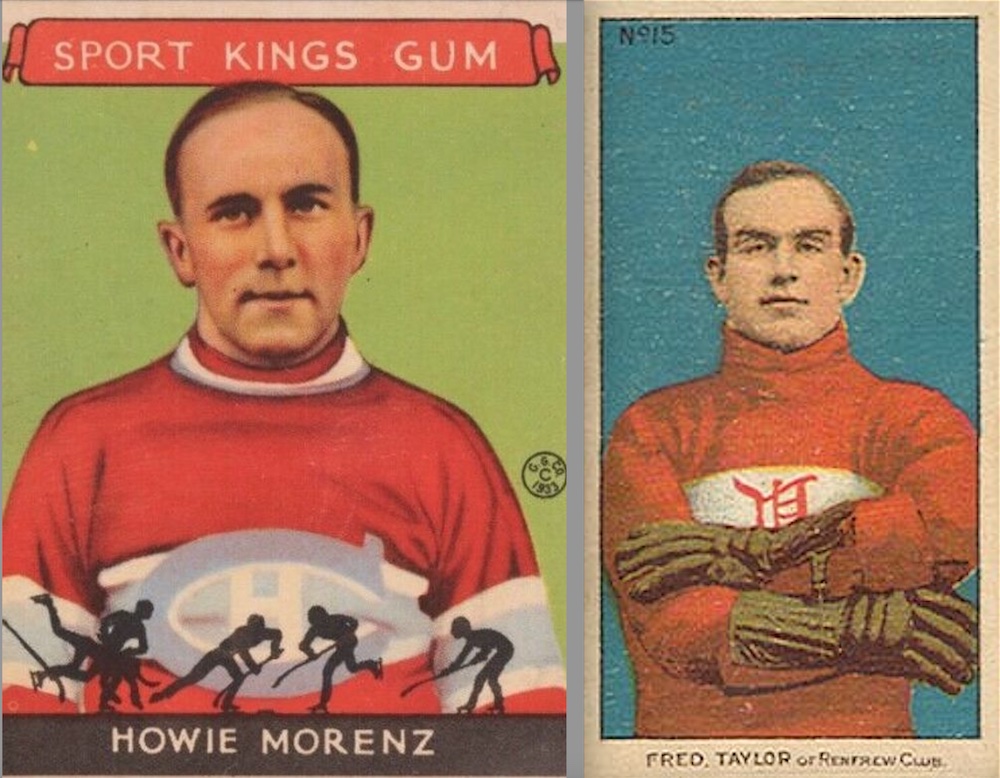
Cooney Weiland was born in Egmondville, Ontario, just outside of Seaforth (about 140 kilometres from Owen Sound) on November 5, 1904. After playing his early hockey in Seaforth, Weiland came to Owen Sound in the late fall of 1922. Playing with Butch Keeling and Teddy Graham — two other future NHLers who’d grown up here — Weiland would lead the Greys to that first Memorial Cup title in 1924. Though he left town to begin a pro career the following season (and probably never lived here again, despite what many old-time hockey stories would later say), Weiland was long-associated with Owen Sound and the ’24 Greys, and well-remembered in town for the next 40 years or more.
In a story in the Owen Sound Sun-Times on March 13 1968, when Weiland was nearing the end of what would be a 21-year tenure as the hockey coach at Harvard University, he reminisced about his early days and the greatest player of his era; a player who’d grown up in Mitchell, Ontario, about 20 kilometres from where Weiland had lived as a boy.
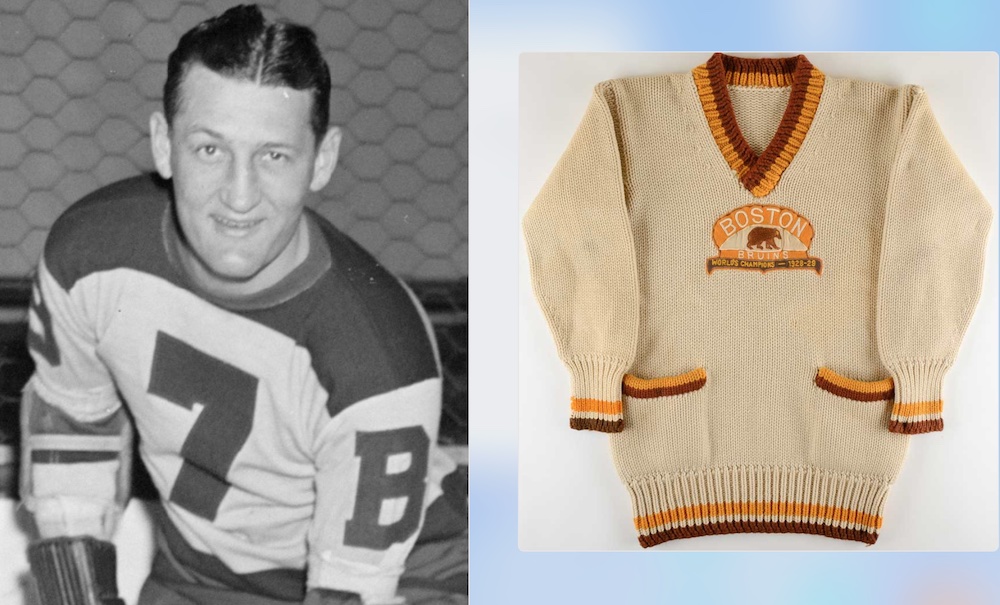
the Stanley Cup as a rookie in 1928-29 and in his last season of 1938-39.
“It was common knowledge in our part of the country that Howie [Morenz] was the greatest thing that ever happened in hockey. No other player I saw could skate as fast as Morenz could. In three strides, he would be at full sail. He attacked defences so fiercely and at such reckless speed…. Morenz was absolutely fearless.”
Weiland talked about his early days facing Morenz when Cooney was still in Seaforth and Howie had moved to Stratford. Still, it got me wondering if Morenz himself had ever played in Owen Sound.
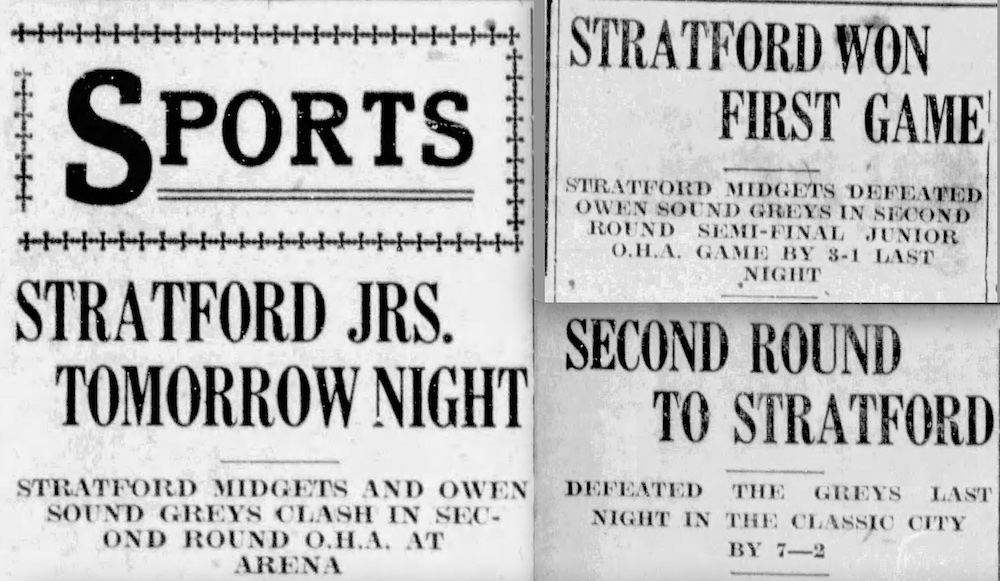
Turns out, he did.
Probably just once, when the Stratford Midgets faced the Owen Sound Greys in a Junior playoff game in the Ontario Hockey Association on February 9, 1921. The next day’s Sun-Times called the game “very exciting” and said it “kept the large crowd in an uproar from start to finish.”
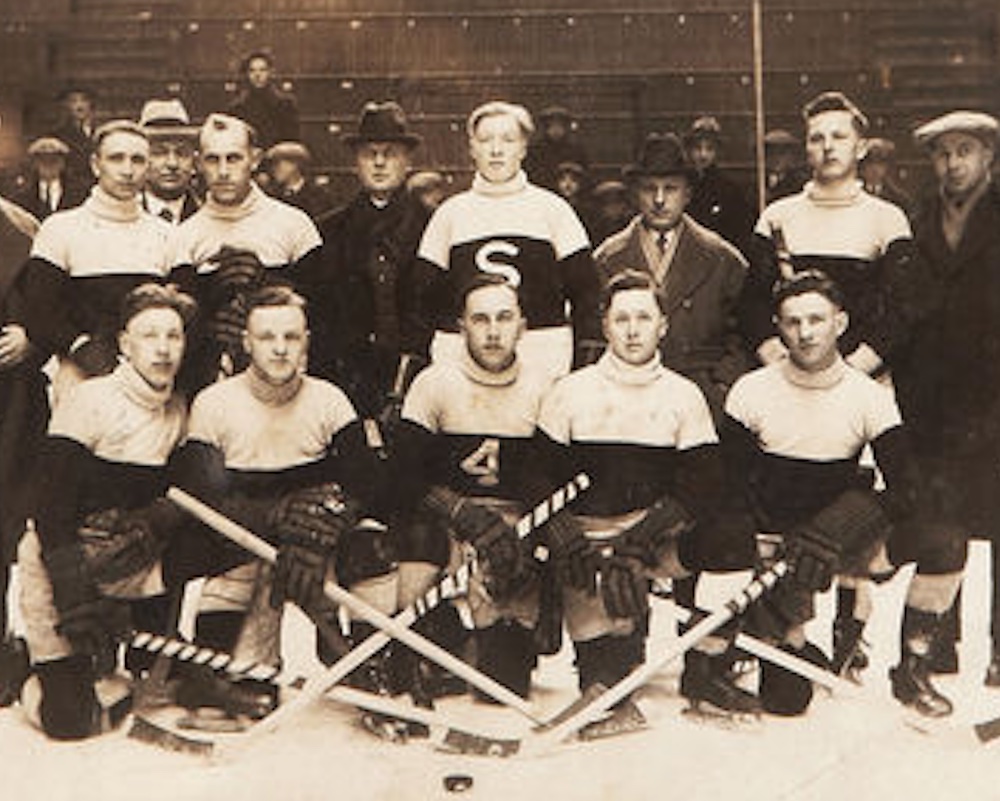
The ice was soft, due to mild weather, “but nevertheless there was some fast playing.” The Sun-Times felt the Greys had six chances to every one for Stratford, “and it was only the good work of the Midget goaltender and the luck he had that saved the famous Midgets from a loss.”
Owen Sound scored the only goal of the first period, but Stratford got two in the second, “one from Morenz the speedy centre,” and went on to a 3-1 victory. Two nights later, in the return game at Stratford, Morenz scored five times to lead the Midgets to a 7-2 win and a 10-3 triumph in the total-goals series. Morenz would lead Stratford to the Memorial Cup final in 1921 (crushing Seaforth and Cooney Weiland three times en route), but they would lose to the Winnipeg Falcons.

A few years later, Howie Morenz launched his NHL career with the Montreal Canadiens during the 1923-24 season. He went on to be named Canada’s Hockey Player of the Half-Century in a Canadian Press poll in 1950. But a generation before Morenz, the player most often thought of as the greatest in Canada, and often considered the game’s first superstar, was Cyclone Taylor.
Born Frederick Wellington Taylor in Tara, Ontario — about 20 kilometres from Owen Sound — on June 23, 1884 (many sources say 1885 … or 1883), his family moved some 90 kilometres south to Listowel around 1891. Though Taylor had learned to skate in Tara, it was in Listowel where he began his hockey career. He would go on to star, mainly with the Ottawa Senators, the Renfrew Millionaires, and the Vancouver Millionaires, in a pro career from 1905 to 1923.
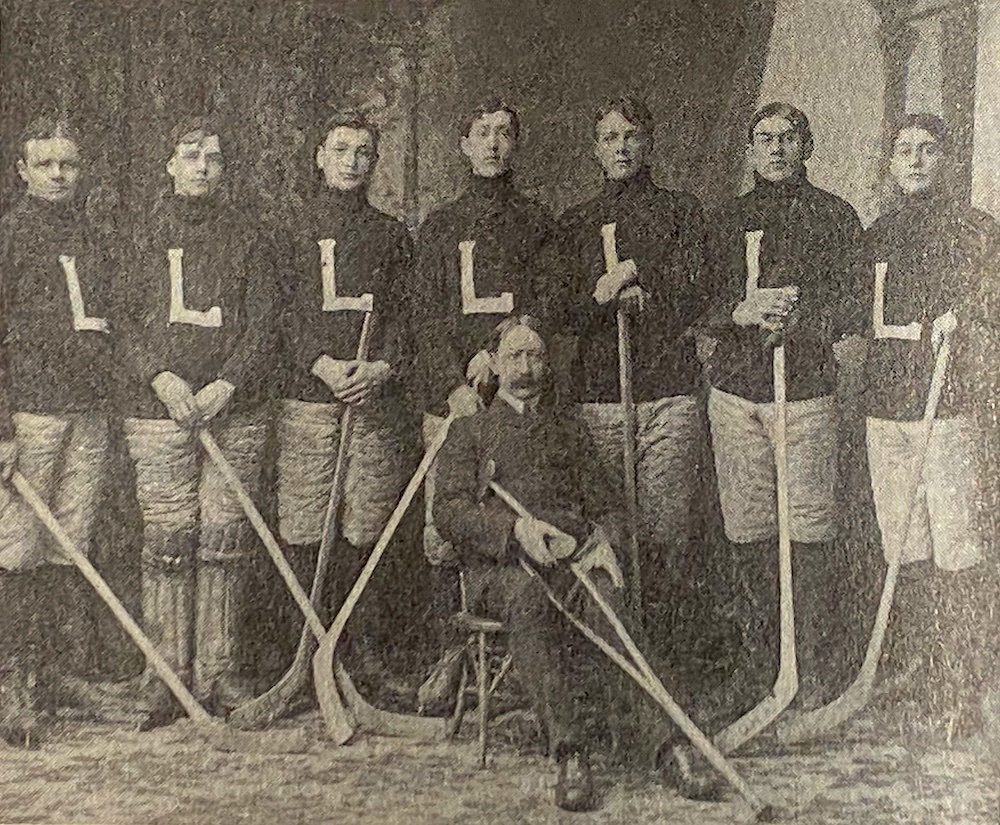
Like Morenz, Cyclone Taylor appears to have played just one game in Owen Sound. It was also a Junior playoff game; this one on February 10, 1904. The final score was 10-6, but the Owen Sound Times (this was before the 1918 merger with the Sun) thought it was “a somewhat listless affair” before a small crowd. “The visitors are a gentlemanly bunch,” said the Owen Sound paper, “and they have a strong, well-balanced team. Taylor is the star of the septette, but they are all fast enough to excuse the pride that the Listowel people take in the team.”
Game two in the series was scheduled for Listowel on February 12, but the Owen Sound Juniors didn’t make it. No reason for the postponement is given. The town’s Intermediate team went instead and faced the Listowel Juniors in an exhibition match. According to the Globe newspaper in Toronto, the home team scored a 19-7 victory.
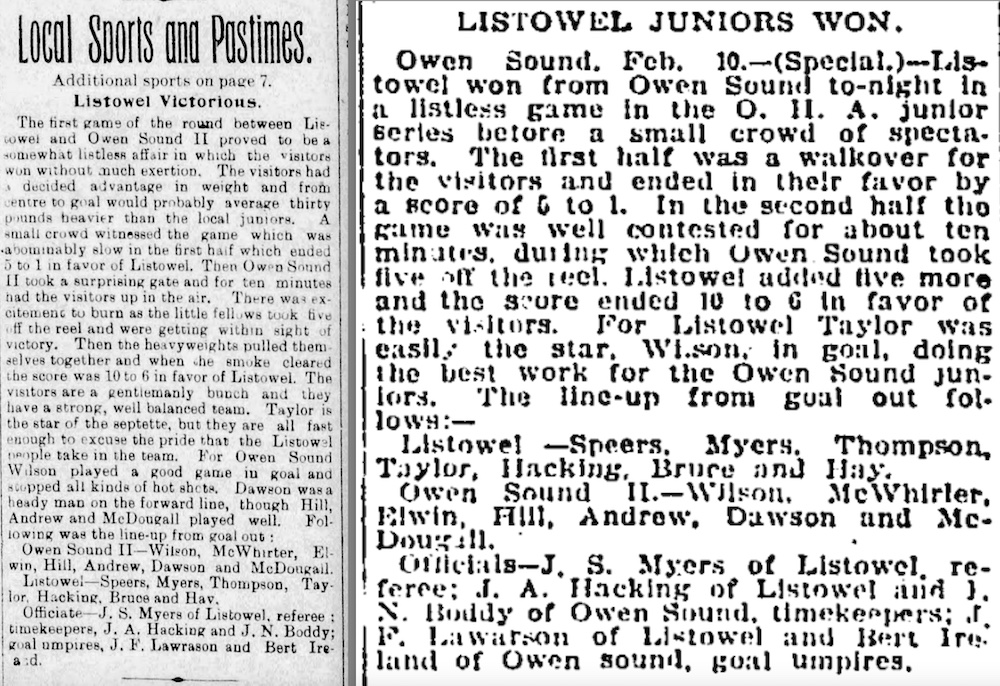
Team captain Fred Taylor led Listowel to a win over Barrie in the next playoff round, and on to the one-game provincial final in Toronto against the Beechgrove team from Kingston. Listowel lost 9-5, but even getting that far was a big accomplishment for a small-town team. Taylor was now one of the most famous hockey players in the province and would soon be on to bigger and better things.
Another fun story…thanks for sharing. Enjoy Hockey Day in Canada in January.
More interesting research! And congratulations on the success of your new book!
I’m lucky to know a famous writer!!!!
Yay!!!
Eric: Grade A all the way. Morenz, to me was the real Babe Ruth of Hockey. But all I could do was read about him and there was enough available even in Brooklyn. My wife, Shirley, and I had the pleasure of interviewing Cyclone Taylor at his Vancouver home. A very special evening. If I’m not mistaken my favorite coach who I never met was from Owen Sound. Arguably the all-time best, Hap Day.
Skated with Cyclone during a hockey intermission on our NBC telecast in ’74 or ’75. A great thrill to be holding his arm as we circled the ice chatting all the way at the Pacific Coliseum, in Vancouver. HNIC vetoed my suggestion to skate with such an elder — “He may fall down” — but NBC said “Go for it”. He later wrote about that skate in his book.
Good job, Eric.
Lorenz he was a great big storm. Great stuff! Local boys are always the best.
Fantastic story – Always have liked HOCKEY DAY IN CANADA and its counterpart here, HOCKEY DAY IN AMAERICA